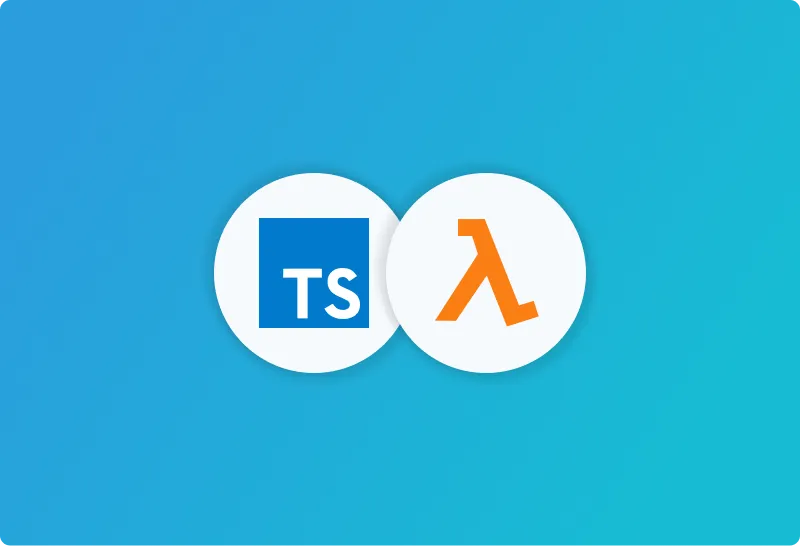Zipping files to AWS S3 in TypeScript using streams

Introduction
Recently, I had to create a feature to allow my customers to create an organized zip for their video content (which can be up to 100-200 videos). In this blog post, we’ll explore how to efficiently create a ZIP file in S3 from other files in S3 by offloading the zipping process to a Lambda function, which also leverages streams to use as less memory as possible
Lambda function
To address this problem, we’ll create a Lambda function that takes a list of files in S3 as input, retrieves these files, and creates a ZIP file that contains them. Its written in TypeScript and uses the archiver library to efficiently create the ZIP file by using streams. This function will be triggered by an invoke command, passing the required parameters to create the ZIP file, which is an object with the following properties:
- bucket: The name of the S3 bucket that contains the files.
- zipFileName: The name of the ZIP file to be created.
- filesToZip: An array of objects, where each object contains the key (S3 key) and fileName (name of the file in the ZIP file) of a file to be included in the ZIP file.
One problem I found is that the AWS SDK has a limit of 50 maximum sockets available, so when I tried to execute this code with an array bigger than 50 elements, the lambda just aborted the execution, but without any errors. After reading some GitHub issues and documentation, I realized that I had to increase the maximum limit of sockets that the internal agent can handle when requesting the stream for a file. In other words, 1 socket corresponds to a GetObjectCommand call.
Here’s the final code:
import archiver from 'archiver';
import { NodeHttpHandler } from '@smithy/node-http-handler';
import https from 'https';
import { PassThrough, Readable } from 'stream';
import { S3Client, GetObjectCommand } from '@aws-sdk/client-s3';
import { Upload } from '@aws-sdk/lib-storage';
export interface FileToZip {
key: string;
fileName: string;
}
interface ZipperParams {
bucket: string;
zipFileName: string;
filesToZip: FileToZip[];
}
const agent = new https.Agent({
maxSockets: 500, // Maximum concurrent files to process
});
const requestHandler = new NodeHttpHandler({ httpsAgent: agent });
const s3Client = new S3Client({ region: 'eu-west-3', requestHandler });
export const handler = async (event: ZipperParams): Promise<void> => {
const { bucket, zipFileName, filesToZip } = event;
const stream = new PassThrough();
// No compression for faster execution with the store parameter as true
const archive = archiver('zip', { store: true });
archive.on('error', (err: Error) => {
throw new Error(`Archiving error: ${err.message}`);
});
archive.on('progress', (data) => {
console.log(`Archived entry -> ${data.entries.processed} / ${data.entries.total}`);
});
archive.pipe(stream);
for (const [i, file] of filesToZip.entries()) {
const { key, fileName } = file;
const getObjectCommand = new GetObjectCommand({
Bucket: bucket,
Key: key,
});
const response = await s3Client.send(getObjectCommand);
const fileStream = response.Body as Readable;
archive.append(fileStream, { name: fileName });
console.log(`Appended file stream for ${fileName} ${i}/${filesToZip.length}`);
}
const uploadPromise = new Upload({
client: s3Client,
params: {
Bucket: bucket,
Key: zipFileName,
Body: stream,
ContentType: 'application/zip',
},
});
try {
console.log(`Finalizing zip...`);
archive.finalize();
console.log(`Uploading data...`);
await uploadPromise.done();
console.log(`Successfully uploaded '${zipFileName}' to bucket '${bucket}'.`);
} catch (error) {
console.error('Error uploading file:', error);
}
};Invoking the Lambda Function
To invoke the Lambda function, simply use the @aws-sdk/client-lambda package with the following code:
import { LambdaClient, InvokeCommand } from '@aws-sdk/client-lambda';
import config from '../../config';
import logger from '../logger';
const lambdaClient = new LambdaClient({
region: config.aws.region,
credentials: {
accessKeyId: config.aws.accessKeyId,
secretAccessKey: config.aws.accessSecretKey,
},
});
const baseUrl = `https://${config.aws.bucket}.s3.${config.aws.region}.amazonaws.com/`;
export const createZip = async (params: Omit<ZipperParams, 'bucket'>) => {
const payload: ZipperParams = {
bucket: config.aws.bucket,
...params,
};
const command = new InvokeCommand({
FunctionName: config.aws.lambdas.zipperName,
Payload: Buffer.from(JSON.stringify(payload)),
});
try {
await lambdaClient.send(command);
return new URL(params.zipFileName, baseUrl).toString();
} catch (err) {
logger.error('Error creating zip file', err);
return null;
}
};